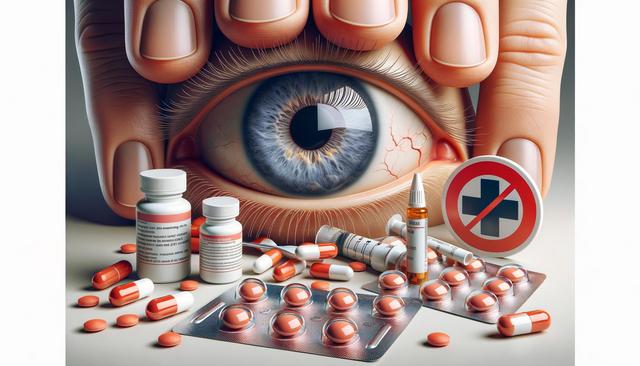How Medications Impact Eye Health
Macular degeneration is a leading cause of vision loss, particularly among older adults. While genetics and age-related factors play a significant role, emerging research has also highlighted the potential impact of medication use on eye health. Some prescription drugs have been associated with adverse effects on the retina or the macula, the central part of the eye responsible for sharp vision. Understanding these risks is crucial, especially for individuals who rely on long-term pharmaceutical treatments.
Medications linked to macular degeneration may include those intended for systemic conditions like high blood pressure, cholesterol management, or autoimmune disorders. While these drugs are beneficial in managing chronic illnesses, they can sometimes have ocular side effects. Recognizing the connection between pharmaceuticals and macular health can help patients and healthcare providers make informed decisions about treatment plans.
Types of Medications Linked to Macular Degeneration
Several categories of medications have been studied in relation to their potential impact on the macula. These include both prescription and over-the-counter options. Although the risk varies among individuals, it’s helpful to be aware of the types of drugs that may pose a concern:
- Antimalarial drugs – commonly used for autoimmune conditions, they have been associated with retinal toxicity over prolonged use.
- Corticosteroids – long-term systemic use may contribute to increased intraocular pressure and retinal changes.
- Cholesterol-lowering agents – some studies suggest a possible link between certain statins and age-related macular degeneration.
- Psychotropic medications – including antipsychotics and antidepressants, which have been observed to affect vision in some users.
It’s important to note that not everyone taking these medications will experience eye damage, but being mindful of potential risks helps in early detection and prevention of conditions such as macular degeneration.
Recognizing Symptoms and Seeking Timely Evaluation
If you’re using any of the known drugs that affect eyesight, regular eye checkups become even more important. Early symptoms of macular degeneration can be subtle or mistaken for normal aging, which is why proactive care matters. Symptoms to watch for include:
- Blurry or distorted central vision
- Difficulty reading or recognizing faces
- Dark or empty areas in the center of your visual field
- Color perception changes
Patients taking prescription meds with eye damage potentials should report any visual changes to their ophthalmologist. Timely evaluation can prevent further progression of eye conditions, especially if the issue is caught in its early stages. Monitoring your eye health while on long-term medication is a practical approach to reducing risks associated with pharmaceuticals and macular health.
Working With Your Healthcare Provider
Managing the risks of meds causing vision loss involves open communication with your healthcare provider. If you’re prescribed a medication known to influence ocular health, your doctor might recommend additional precautions, such as:
- Baseline and routine eye exams
- Adjusting dosages if necessary
- Considering alternative treatments where available
- Coordinating care between your general physician and eye specialist
In some cases, the benefits of a medication may outweigh its risks, and discontinuation might not be advisable. However, when well-informed, patients can work with their providers to minimize exposure to drugs that affect eyesight and monitor their vision closely over time.
Protecting Your Vision While Managing Other Conditions
Staying informed about eye health medication risks is a proactive step toward safeguarding your vision. While not all medications will lead to complications, awareness and vigilance are key. Steps you can take to support your eye health include:
- Maintaining a balanced diet rich in eye-friendly nutrients like lutein and omega-3s
- Wearing UV-protective eyewear outdoors
- Managing underlying health conditions, such as diabetes or hypertension
- Scheduling regular comprehensive eye exams, especially if you’re using medications linked to macular degeneration
By understanding how pharmaceuticals and macular health intersect, individuals can take a more active role in preserving their eyesight while continuing to treat other medical conditions effectively.
Conclusion: Staying Vigilant About Medication and Vision
For individuals managing chronic conditions with long-term medications, being aware of the potential for meds causing vision loss is essential. While many drugs are vital for overall health, some may carry risks for the eyes, particularly the macula. Regular eye checkups, informed discussions with healthcare providers, and awareness of early symptoms can help mitigate these risks. By staying proactive, patients can balance their treatment needs with the goal of maintaining long-term visual health.




Leave a Reply